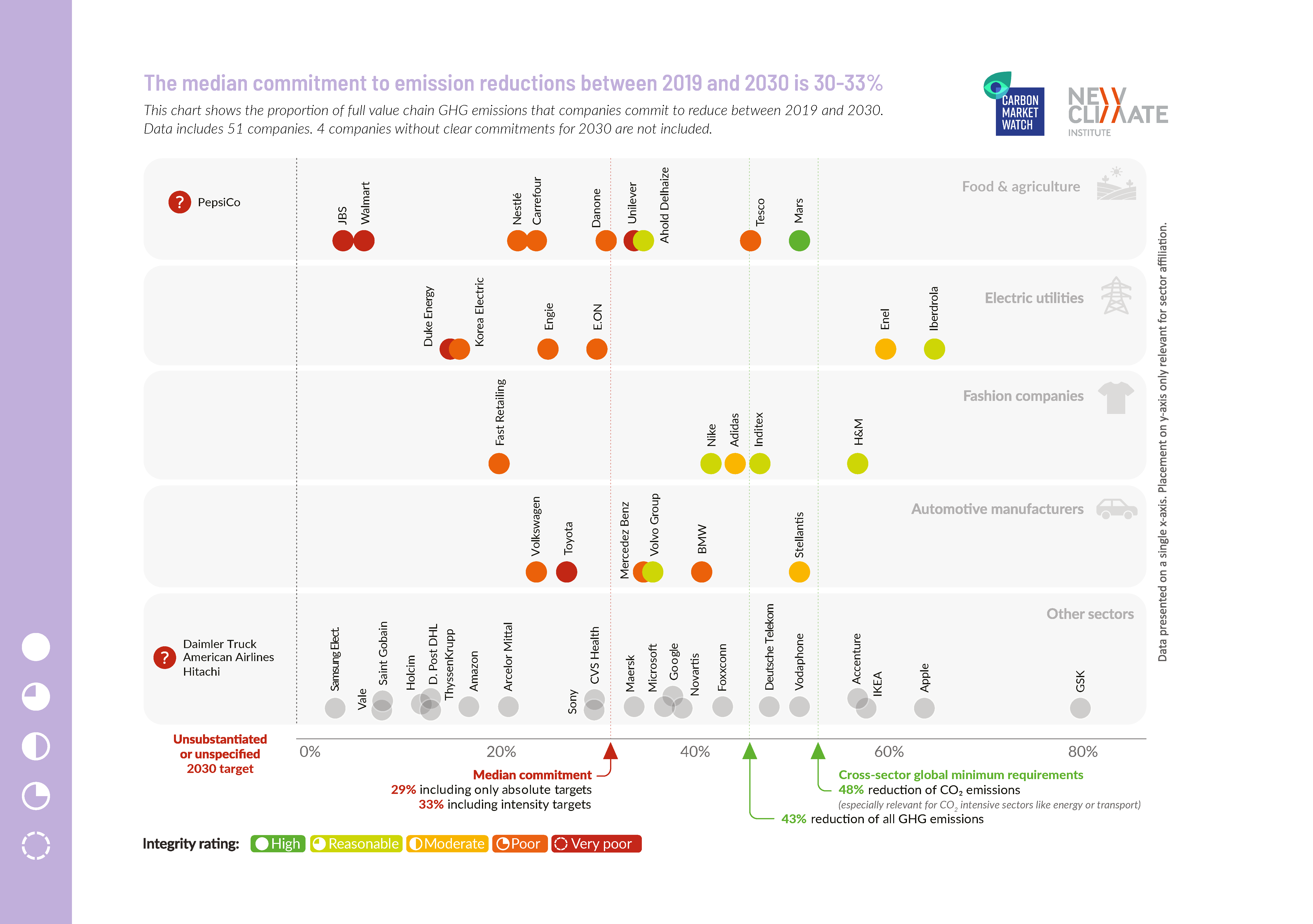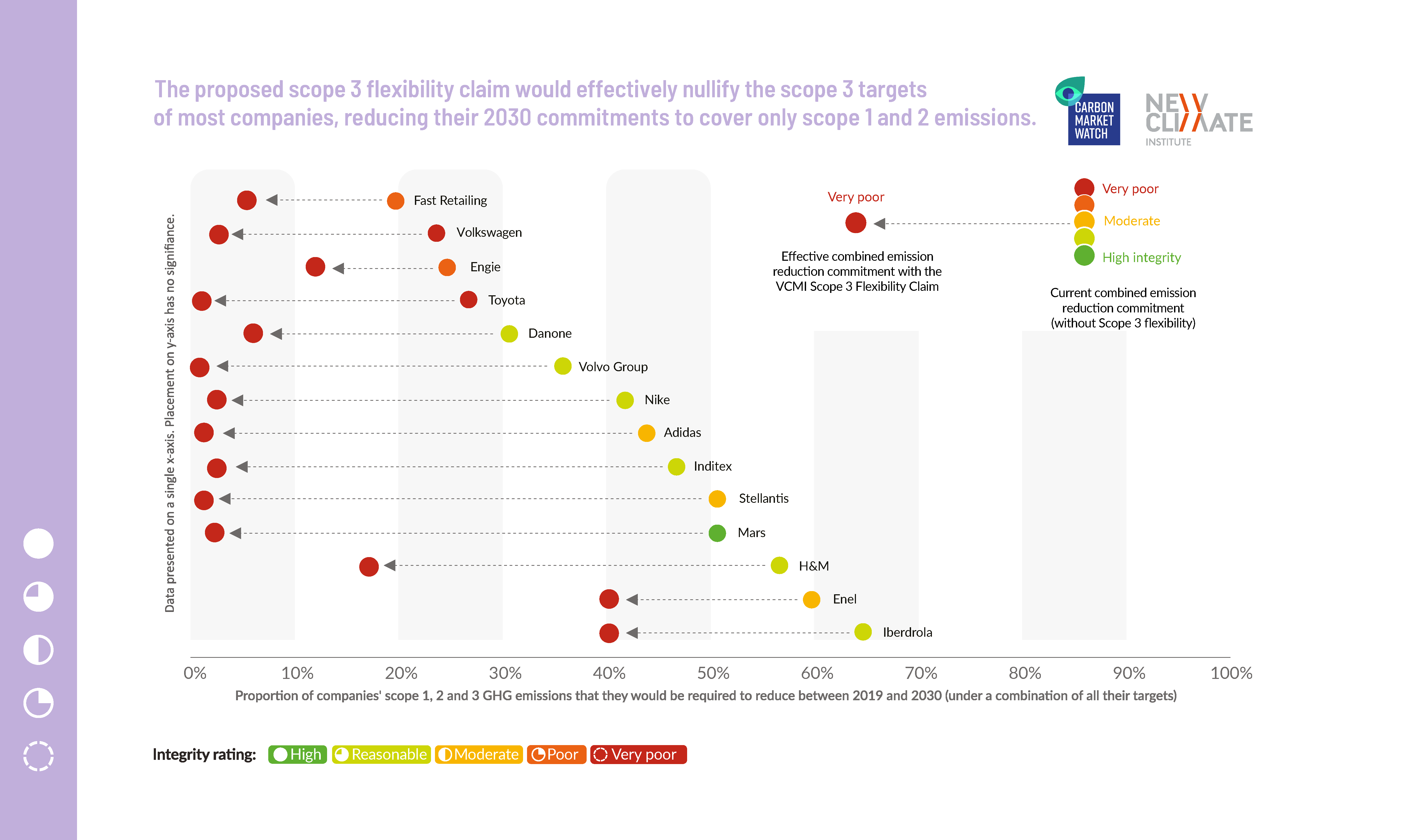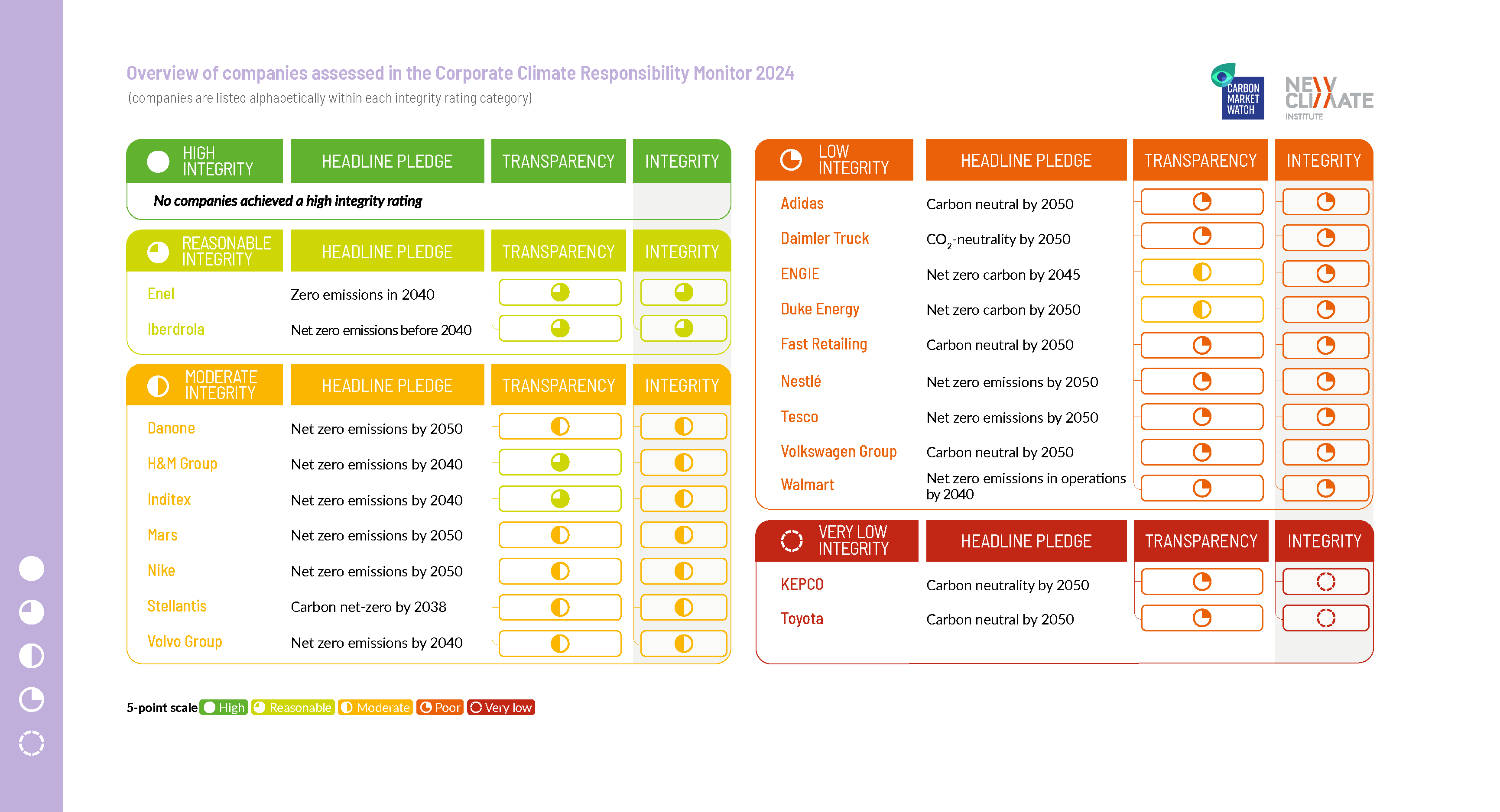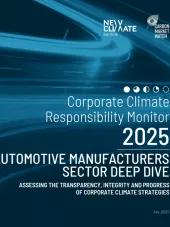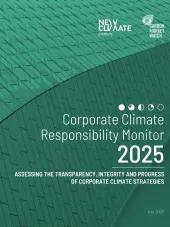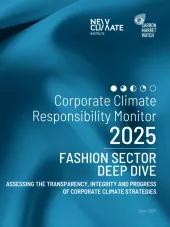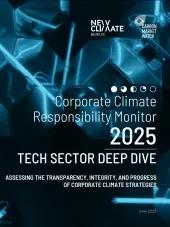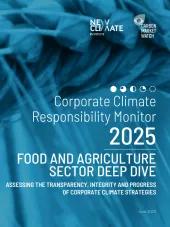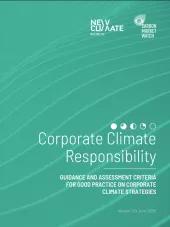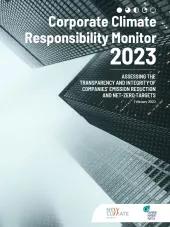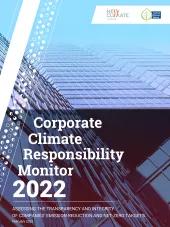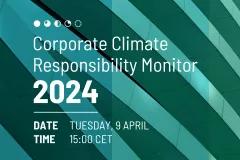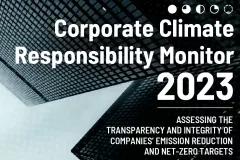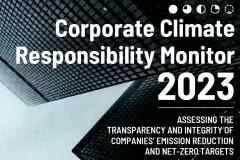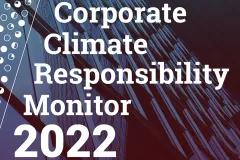The 2024 Corporate Climate Responsibility Monitor (CCRM) analyses the climate strategies of 51 major global companies, critically assessing the extent to which they demonstrate corporate climate leadership. We evaluate the integrity of climate pledges against good practice criteria to identify examples for replication and highlight areas where improvement is needed.
Key insights:
The collective ambition of companies’ 2030 and net-zero climate targets has gradually improved over the last two years. However, most companies continue to fall short of the economy-wide emission reductions required to limit global warming to below 1.5°C. The 2030 climate targets of 51 major companies translate to a median absolute emission reduction commitment of just 30% of the full value chain emissions between 2019 and 2030.
Proposals for introducing flexibility mechanisms for scope 3 emission reduction targets are gaining momentum, although this would entail backsliding on already insufficient commitments, in many cases nullifying companies’ current targets.
The Science Based Targets initiative (SBTi), as the largest and most influential validator of corporate targets and independent assessments, plays a critical role in validating corporate climate pledges. A comparison between the ratings of SBTi and other assessors indicates a significant degree of leniency in the current validation practices and points to multiple areas for improvements.
Mixed progress towards critical sector transitions calls into question the credibility of companies’ apparent ambition. Many companies continue to rely on false solutions such as Carbon Capture, Utilisation and Storage (CCUS) standalone Renewable Energy Certificates (RECs), bioenergy and carbon dioxide removals as an alternative to emission reductions.
The integrity of the current corporate accountability system is impaired by inherent tensions deriving from a lack of institutional separation and direct corporate influence. We need to evolve from voluntary initiatives to formal accountability.

